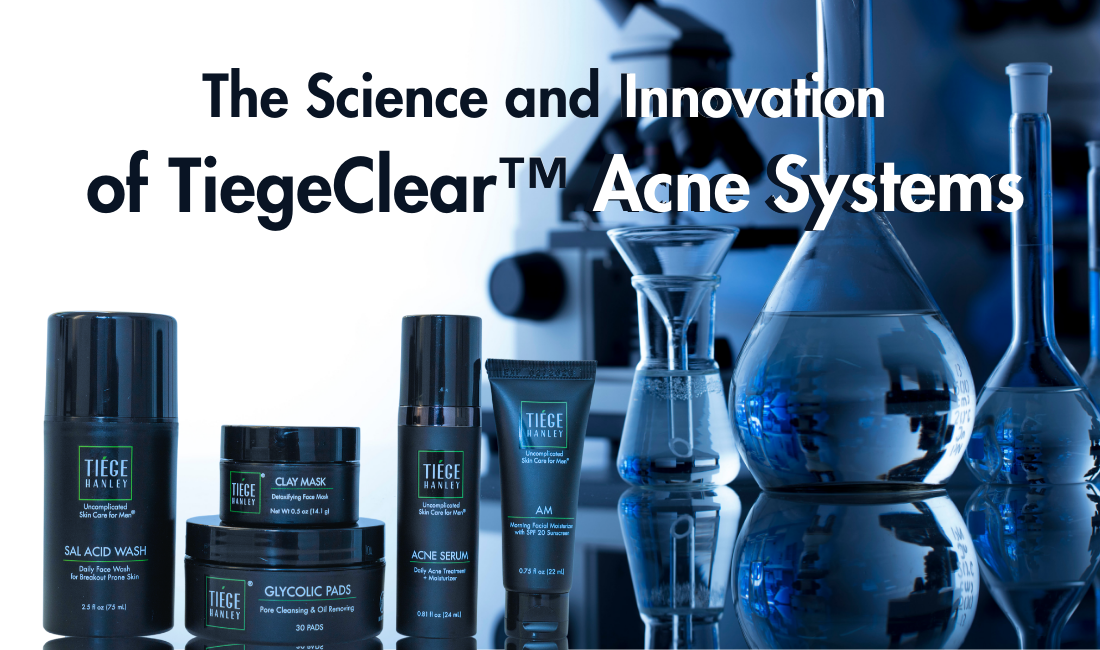Applying deodorant is something that most guys do on autopilot. After using deodorant every day for years, it no longer requires much thinking.
Lately though, there has been some controversy surrounding deodorants and antiperspirants that has caused many guys to take a closer look at their favorite brands. While the controversy mostly centers around the use of aluminum-based compounds in deodorant, it’s not the only ingredient that is making the health-conscious crowd seek out all-natural products.
Should you jump on the all-natural deodorant train? To help you make an informed decision, we’ll give you a science-backed answer regarding antiperspirants and their most controversial ingredients.
Here are three things you should know about the latest research on antiperspirants:
- While aluminum-based compounds can be toxic, researchers argue that not enough is absorbed into the body for it to be a public health concern.
- There is insufficient evidence that an antiperspirant causes cancer.
- Although there is little evidence tying cancer to deodorant, it’s up to you to make a decision that’s best for your body.
The Deodorant Controversy: What’s All the Fuss About?
In case you haven’t kept up with the latest changes in the men’s grooming industry, let us provide some context. Starting around the early 2000s, well-known antiperspirant brands such as Axe and Old Spice began receiving a lot of negative press due to growing concerns over the ingredients in their antiperspirants.
Specifically, people were—and still are—concerned about the potential for antiperspirants with aluminum-based compounds to disrupt hormones and cause cancer, among other health issues. This controversy came about during the height of the modern green movement, in which people began searching for eco-friendly personal care items and skin care products containing strictly science-backed ingredients.

What Does the Science Say? A Deep Dive into Antiperspirants
Are the health concerns surrounding antiperspirants all hype or is there some truth to it? To help you separate fact from fiction, let’s break it down:
Claim #1: Antiperspirants Cause Cancer
First, let’s start with the general claim that antiperspirants increase the risk of cancer. While many scientists acknowledge that aluminum salts found in deodorants and antiperspirants can be toxic, they also argue that the substance needs to penetrate deep into the skin to cause cancer.
This is why some researchers have pointed to this 2014 systematic review published in the journal of Critical Reviews in Toxicology, which analyzed existing research regarding health issues and antiperspirants. After examining the literature, researchers found that there was little evidence to show that antiperspirants increased the risk of cancer (see claim: “These results support previous conclusions that there is little evidence that exposure to metallic Al, the Al oxides or its salts increases risk for AD, genetic damage or cancer.”)
Claim #2: Aluminum-Based Compounds in Antiperspirants Cause Breast Cancer
Now, let’s take a look specifically at aluminum-based compounds in antiperspirants.
According to a 2002 study published in the Journal of the National Cancer Institute, researchers found no strong link between antiperspirants and breast cancer, going so far as to call it a “rumor that…continues to circle the Internet” (see claim: “The risk for breast cancer did not increase with any of the following activities:...antiperspirant…or deodorant…”)

However, a more recent study published in the Journal of Inorganic Biochemistry found that there was strong reason to believe that antiperspirants containing aluminum salts could contribute to breast cancer (see claim: “Results reported here demonstrate that aluminum…can interfere with the function of oestrogen receptors of MCF7 human breast cancer cells.”)
Take the skin care quizClaim #3: Parabens in Antiperspirants Cause Cancer
Parabens are preservatives that are often found in many skin care products such as moisturizers and shaving products. Although the FDA considers them safe for use in cosmetics, they’ve been controversial for decades.
Unfortunately, many of the studies surrounding parabens and cancer have been conflicting. In a 2005 review published in Critical Reviews in Toxicology, researchers stated that it was “biologically implausible” for parabens at such low doses to have an adverse effect on the endocrine system (see claim: “…it is biologically implausible that parabens could increase the risk of any estrogen-mediated endpoint…”)
In contrast to these findings, a 2004 study published in the Journal of Applied Toxicology found traces of parabens in the breast tissue of patients with breast cancer (see claim: “Comparison of individual parabens showed that methylparaben was present at the highest level…”)
However, it should be noted that there were flaws with this study that are worth noting. First, the study failed to show that parabens were the cause of breast cancer in these patients. Additionally, while parabens may have a small influence on estrogen in the body, natural estrogen in the body is much stronger and therefore more likely to contribute to breast cancer.
The Final Verdict
While there is some evidence that aluminum-based antiperspirants and deodorants aren’t good for us, the evidence certainly isn’t very strong. However, it should be up to the individual to weigh the potential risk and decide accordingly.
Some people prefer to use simple and uncomplicated personal care products, while others don’t pay much attention to the ingredients listed on the back of their deodorant or skin care products. At the end of the day, it’s up to you to interpret the research and make a choice that you feel comfortable with.








